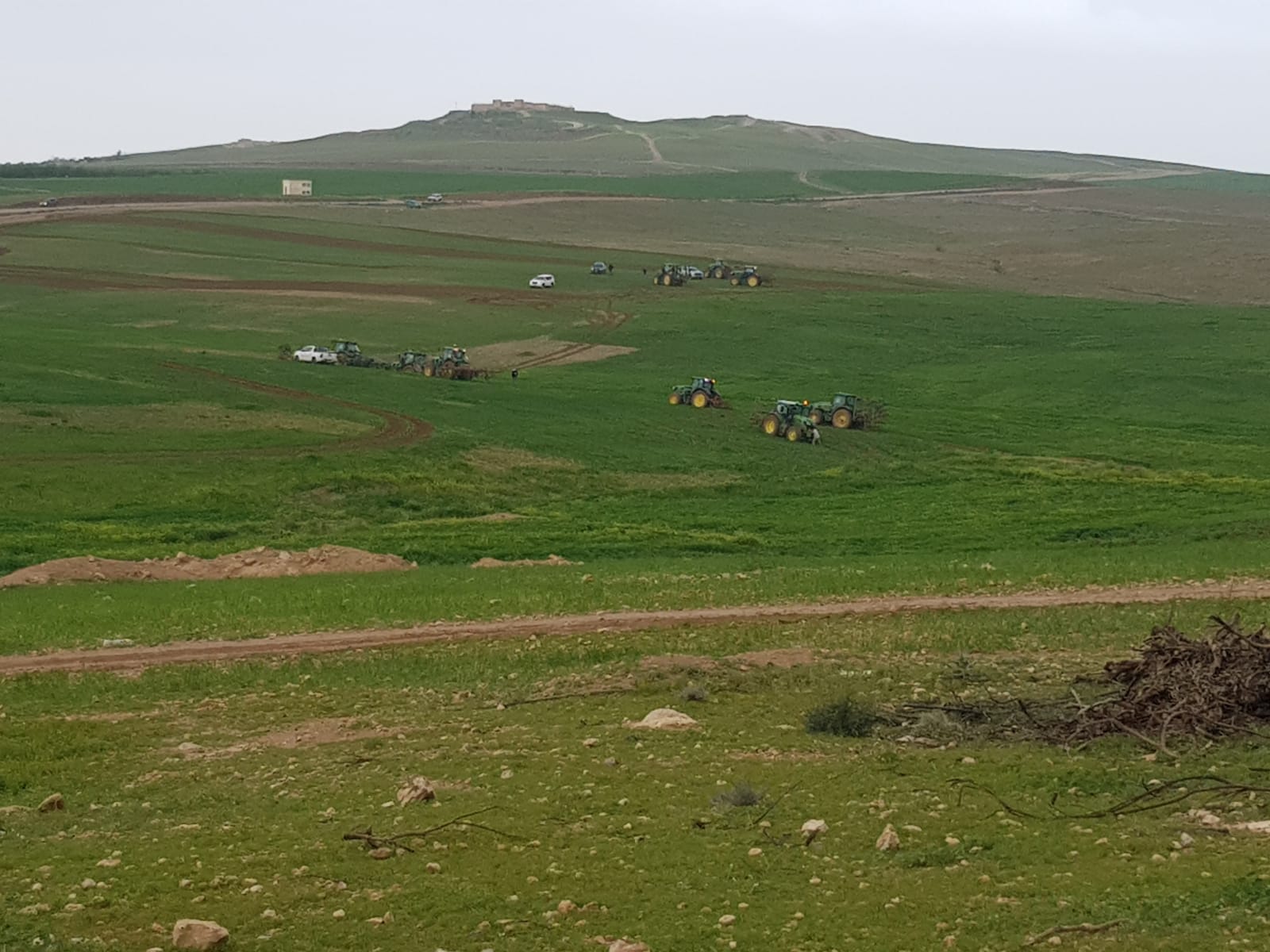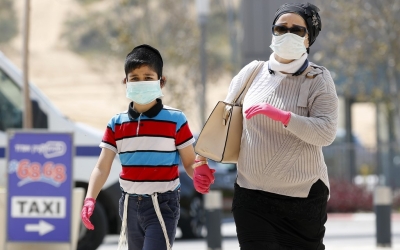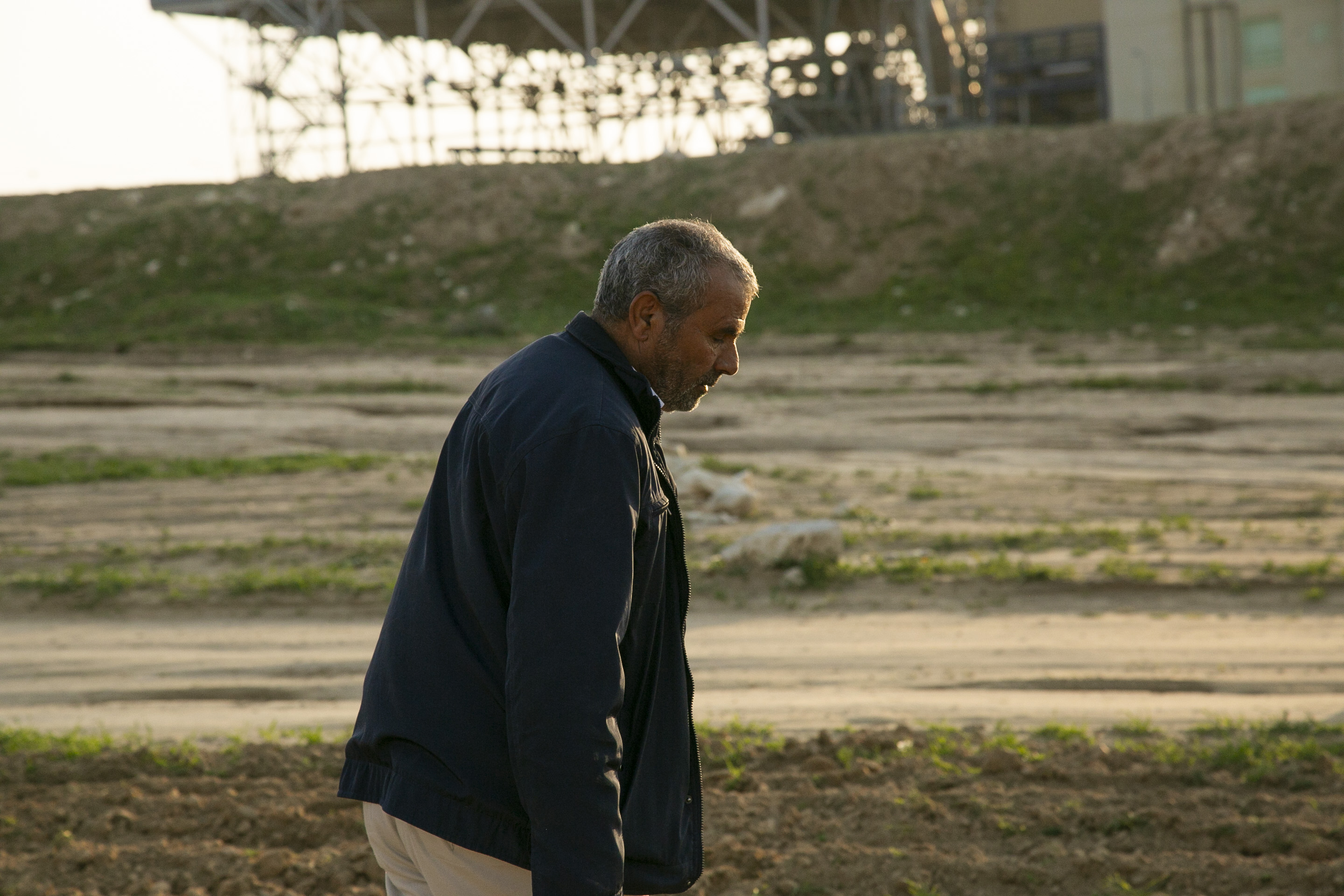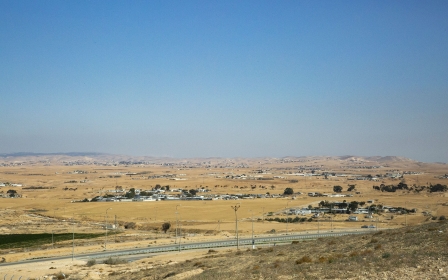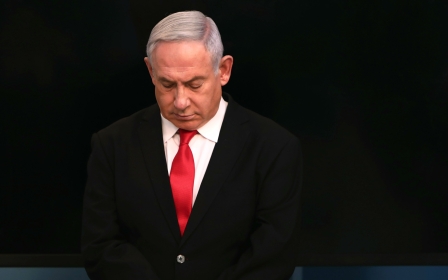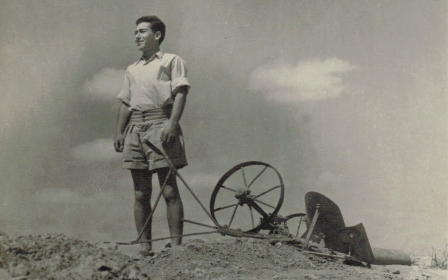Coronavirus: As Israel shuts down, authorities destroy Bedouin crops
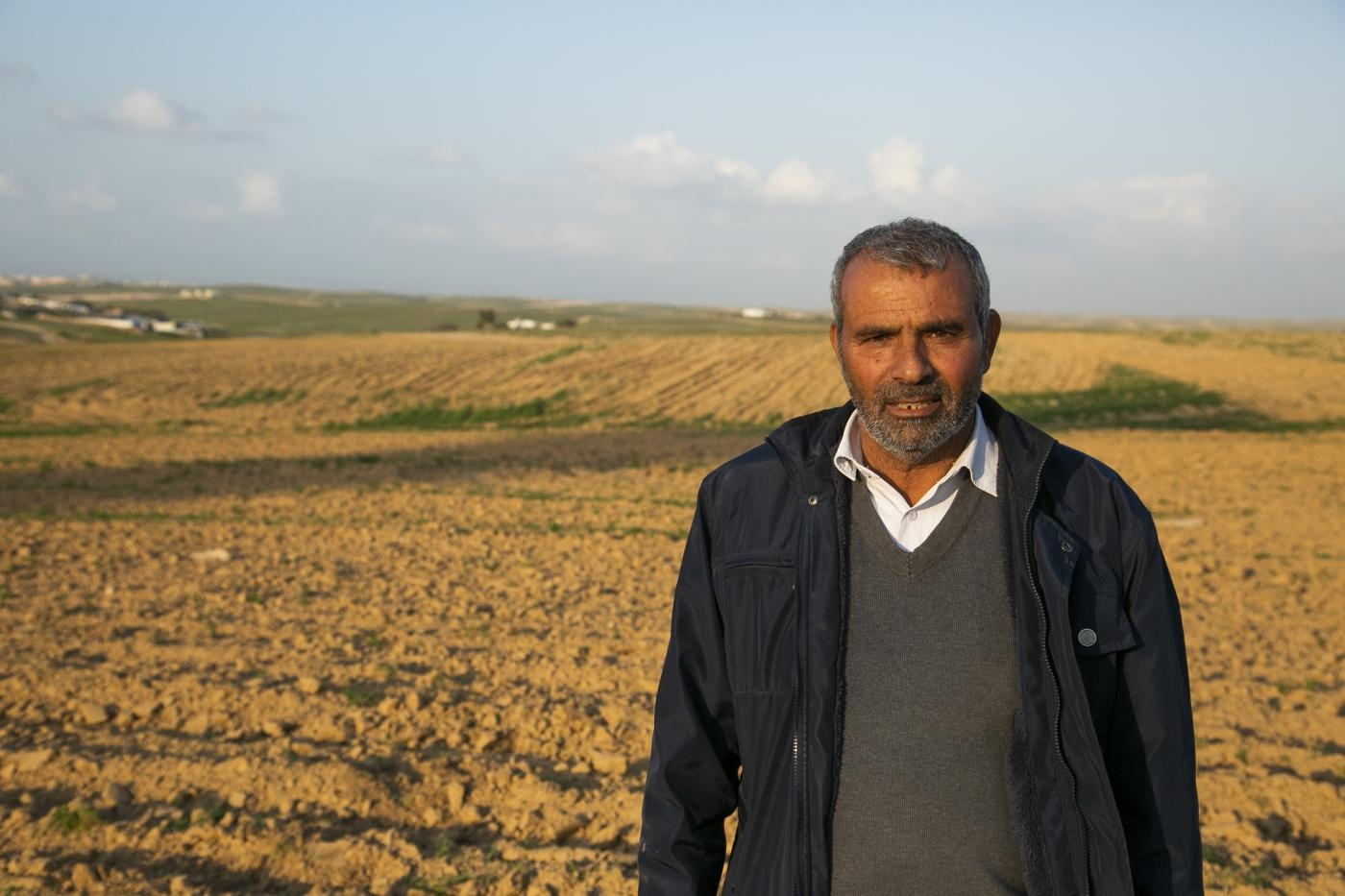
Israeli authorities destroyed hundreds of hectares of agricultural land in two Bedouin communities in the Negev desert this week while most other government activities were curtailed to contain the spread of coronavirus.
As Israelis were banned from meeting in groups of more than 10 and those flying in from abroad were quarantined, departments overseeing land use in the Negev continued to order evictions and clear land, a move that activists say violated the government's own ban against large gatherings.
On Monday morning, Israeli police officers and members of the Green Patrol, a paramilitary force within the Israel Land Authority focused on enforcement issues in the Negev, showed up at the outskirts of Wadi al-Na’am with tractors.
Working from north to south, residents who watched said the officials systematically destroyed a large swath of crops, leaving a massive expanse of upturned soil where there had been stocks of wheat and barley, used to feed their sheep and cows.
“Why do they raze it? Our cattle want to eat, to live,” said Labad Abu Afash, a local leader in Wadi al-Na’am. “They want to make it harder for us so that they get what they want, to kick us out of the land. That’s their goal.”
New MEE newsletter: Jerusalem Dispatch
Sign up to get the latest insights and analysis on Israel-Palestine, alongside Turkey Unpacked and other MEE newsletters
On Wednesday, authorities went to a second Bedouin village, Tel Arad, and destroyed crops there. Multiple large tractors drove over the land as residents looked on, recording with their phones.
An official with Israel’s Ministry of Agriculture, Yariv Man, told MEE by phone that all government activities like demolitions had been stopped on Thursday to “help the people of Israel combat corona”.
The decision, he said, was taken after these demolitions had been carried out and have since stopped. “Before, they were enforcing the laws of building and planning,” Man said.
'To raze the land at a time when people have nothing to do… It’s unbelievable that the government treats its citizens this way'
- Labad Abu Afash, local leader in Wadi al-Na’am
Since declaring independence in 1948, Israel has spent decades evicting Bedouin from villages in the Negev desert, arguing that they are living illegally on state land in “unrecognised” communities, as Wadi al-Na’am and Tel Arad are often described.
Residents, however, argue that they have been on the land long before Israel was established, and they want to stay in their ancestral home. And while evictions and demolitions happen regularly, they said the timing of those this week shocked them.
“This year especially because it coincided with the spread of coronavirus, we were shocked and surprised by the government,” Afash said.
“Instead of supporting people, it sends tractors. To raze the land at a time when people have nothing to do… It’s unbelievable that the government treats its citizens this way.”
Skeleton operations
As the week went on, Israel’s government instituted increasingly tough restrictions on gatherings and movement in an effort to contain the coronavirus outbreak.
On 9 March, Prime Minister Benjamin Netanyahu had issued a mandatory two-week quarantine for anyone flying into Israel from abroad. By 15 March, the day before authorities arrived at Wadi Na’am, the government had banned gatherings of more than 10 people.
Then, on 16 March, Netanyahu had advanced a controversial plan to allow Israeli intelligence officials to track the cell phone location data of confirmed coronavirus patients to see where they had been. That information would be used to alert other Israelis who may have contracted the virus.
However, the fate of that plan has been thrown into question after the country’s top court issued an injunction on Thursday requiring the government to provide some oversight to the Knesset.
Meanwhile, basic government services were cut back throughout the region, running bare-bones operations and dramatically limiting their work.
Yet the departments overseeing land use in the Negev desert continued on, something that surprised Yeela Raanan, a professor of public policy at Sapir Academic College in Ashkelon.
'I was sure when this coronavirus started that at least the Bedouin could have a breath of fresh air'
- Yeela Raanan, Sapir Academic College
“I was sure when this coronavirus started that at least the Bedouin could have a breath of fresh air,” she said. “That at least during these times, our government would not organise to destroy houses and crops.”
Raanan said that the government’s action could have dire consequences for the Bedouin, who need the crops to feed their animals.
“We’re living in desert, so that means there’s always a very small crop,” she said. “And then the government - if the crop is worth anything - they’ll come with their tractors just about when it’s time to to reap these crops, and they will turn the land over again, destroying the crops totally.”
Ratcheting up pressure
Bedouin towns are scattered across the Negev, each lacking basic services such as roads, access to water and functioning addresses.
For decades, the government has been trying to “regularise” the status of these communities by moving them, activities that have increased under a more rightwing government over the past five years, Raanan said.
'We will stay on our lands until we get all of our rights from this oppressive institution'
- Me'eqel Al Hawashla, Council of Unrecognised Villages member
According to a Ministry of Foreign Affairs publication aimed at explaining Israel to tourists, the purpose is to help the Bedouin reach a higher socio-economic status.
But for residents who watched the state destroy their livelihoods this week, that claim rings false.
“We are farmers, and we want to continue growing crops,” said Me'eqel Al Hawashla, a member of the Council of Unrecognised Villages who had visited both areas this week. His group is a non-governmental body because the state doesn’t acknowledge their claim to the land or their role as community representatives.
“The state is trying to pressure us,” Hawashla said. “They want to have the biggest population they can over the smallest piece of land. And this is impossible. We seek to protect our way of life the same way our ancestors lived.”
He added: “We will stay on our lands until we get all of our rights from this oppressive institution.”
Government officials have advanced plans in recent years to transfer residents of these communities to larger cities, where they’ll be placed in temporary housing. Bedouin from unrecognised areas resist these efforts, arguing these moves would destroy their way of life and force them further into poverty.
“All of these pressures are to make people go away, but we’re not going to go away,” Labad Abu Afash said. “We ask that they recognise Wadi Na’am.”
This article is available in French on Middle East Eye French edition.
Middle East Eye delivers independent and unrivalled coverage and analysis of the Middle East, North Africa and beyond. To learn more about republishing this content and the associated fees, please fill out this form. More about MEE can be found here.


